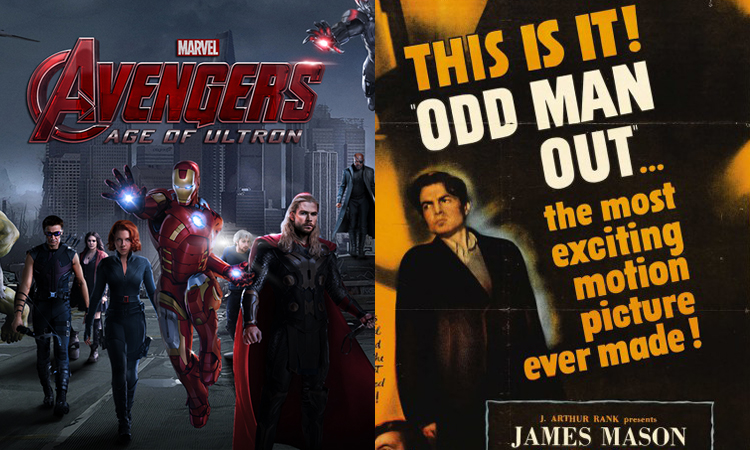
The Avengers: Age of Ultron is fun (some of the time), smart (briefly), and loud (always). It’s also trying to say something meaningful about how we bring problems upon ourselves when we think we’re God. It’s an industrial-strength comic book movie with ambitions to transcend the trappings of generic action cinema, but it doesn’t understand either the dynamics of violence or the moment human beings currently inhabit.
Ultron is a clever idea: Tony Stark (Iron Man) puts the most powerful computers to work to produce an artificial intelligence that will protect the world. Seeing human beings as the greatest threat to earth’s survival, the AI specimen Ultron does the logical thing and decides to wipe us all out. His analysis of the danger of humans leaves a lot to be desired—more pessimistic than rational, failing to take into account the long-term decline in violence, the concept of moral conscience, the history of protest movements, the unexpected potential of human ingenuity, or the possibilities of evolution.
So the film’s basic premise is already broken. A computer that knew everything would also know that human beings, despite our capacity for wounding ourselves, also seem to be getting better at being human. Violence is real, but the response to recent killings of black citizens by police officers shows that instead of ignoring brutality, we now sometimes even know the names of the people who suffer and we’re not willing to stay silent about it. When people protest injustices that in the past would have been considered a fact of life, then the trend is toward more connection, more healing, more justice.
Today’s headlines tell us something important: fewer of us tolerate the violence that used to be taken for granted.
Ultron thinks he’s the most advanced thinker the world has ever seen, but he’s actually way behind the times. So are the Avengers themselves, whose chief weapon against Ultron is to overpower him. “I don’t want to kill him…but he must be destroyed.” So says Vision, the yin to Ultron’s yang. If we ever needed a clearer articulation of what’s problematic about the myth of redemptive violence, it’s this: Ultron “is unique and he’s in pain, but that pain will roll over the entire earth. So he must be destroyed.” There was an opportunity here to examine the relationship between protagonist and antagonist, how violence is often a reaction to shaming, and that oppositional energy only recreates itself. It wasn’t taken.
A better alternative emerges in the form of the classic British/Irish film from 1947 Odd Man Out, just released on DVD and Blu-ray—one of the best films that invites the audience to identify with the “inner antagonist.” It’s not afraid of the idea that our enemies are at some level responding to the projections of evil that we put on them. Directed by Carol Reed (who later made the magnificent The Third Man, about postwar murkiness in Vienna and what it means to make a moral life), Odd Man Out is about a fugitive Irish rebel desperately trying to get back to a safe house in Belfast’s crowded and mysterious streets.
I grew up in that wounded and healing city and this film was talked about there, though perhaps never quite engaged with. But—oh my goodness!—it is something special. Perhaps because it doesn’t easily take sides. James Mason’s Johnny is with the IRA, but is also questioning the use of violence against people; the police are authoritarian but never seen as anything more than just doing their jobs; everyone is keeping some kind of secret. There’s a menagerie of northern Irish—and simply human—character here: sympathetic, passionate, loving, angry, deceitful, self-sacrificing, thuggish, creative, wounded, poetic, dreaming of how to get out of a nightmare. Odd Man Out is a visually magnificent, dramatically thunderous film. It won’t please everyone, because it allows for the fact that everyone has their reasons. In this way it understands that bad guys and good guys are two sides of a coin. Like The Avengers, it doesn’t want to kill bad guys; unlike The Avengers, it suggests that taking time to understand them might help us avoid repeating the cycle of violence.
THE AVENGERS: AGE OF ULTRON is on general release, ODD MAN OUT is available from www.criterion.com
To find out about Rose’s thoughts on how to live a happier life, click here


